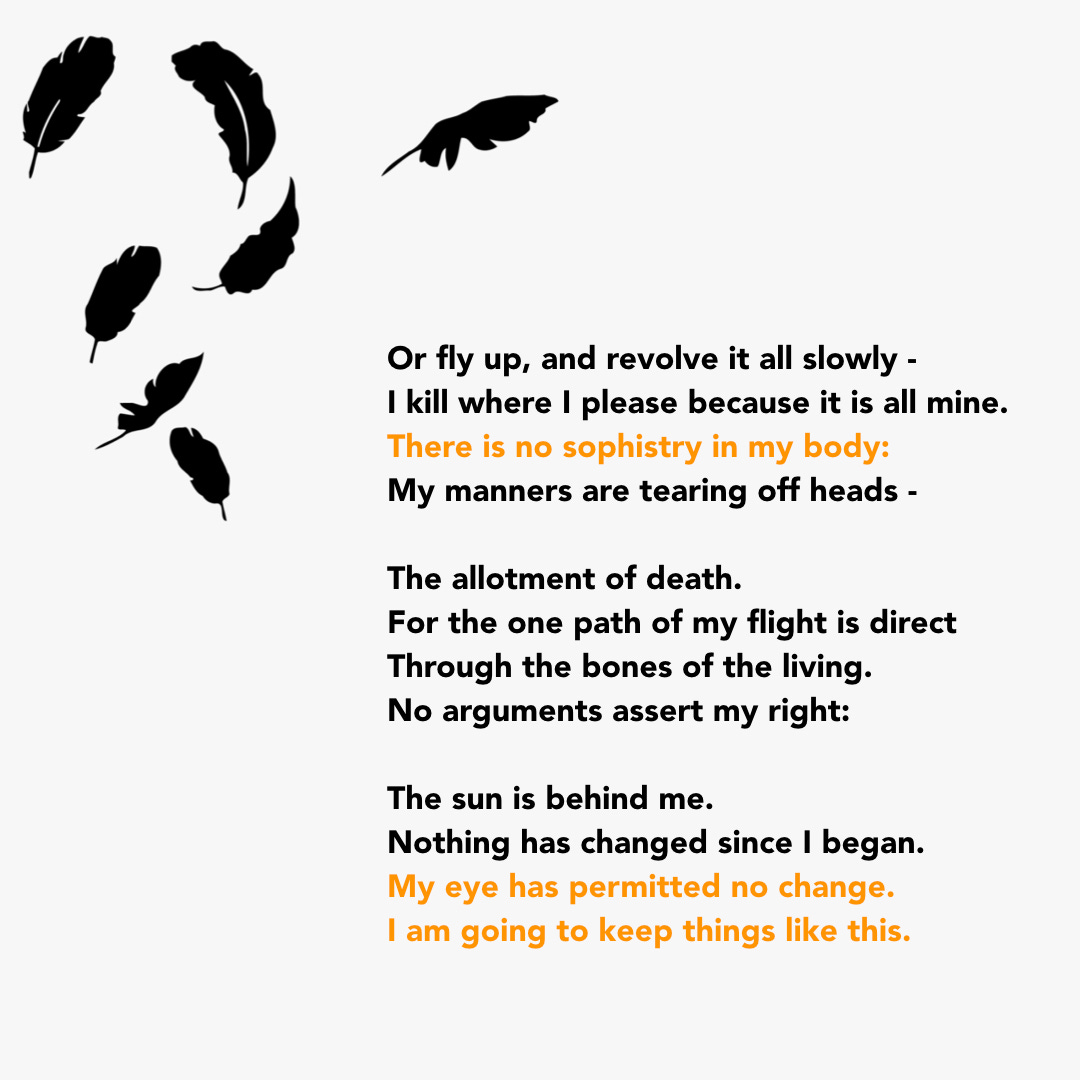Hawk Roosting
Ted Hughes


There is truth in the idea that “fascist” or “evil” is a term that might be thrown around too easily, without too much thought. Mind you, I’m not talking about some Voldemort-fantasy of terror infusion through labelling, nor am I suggesting that the leaders who have taken ruthlessness and xenophobia to unprecedented levels in today’s polity deserve slack - quite the contrary. The term “evil” or “fascist” when used in analytical texts often hinders deeper enquiry. Dismissing something with this label does not allow for an engagement with the psychology or banality (as Arendt would put it) of evil.
I’ve been thinking about this in the context of the tyrannies of democracy across the globe, in the context of the Nazis or others like Pot, Amin. It is an interesting exercise because the characteristics of those who perform great acts of evil are the subtext, often hidden behind the sensationalism of their acts. The definitive and astounding lack of empathy, the clarity of purpose, the “higher calling”, the cold, mechanical rigidity (Eichmann’s “machine-like” efficiency and his invocation of the Kantian “golden imperative”, for instance) - where does it come from? How does it evolve?
The complete suspension of empathy - the inability to fathom the feelings, emotions, thought processes of a another - is the angry cousin of megalomania. One can see the complete creation of a phantasmagoria of glory and conquest that shields most tyrannical leaders from the depravity of their loci of control. This journey makes them move away from everything that makes us human. This is why I find Hughes’ allegory interesting - it uses metaphor to let the subtext continue to remain that; a fantastical inhuman delusion that is as ridiculous as it is compelling.
